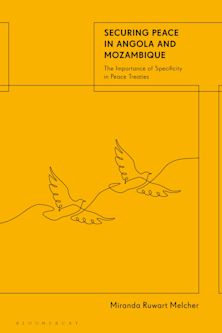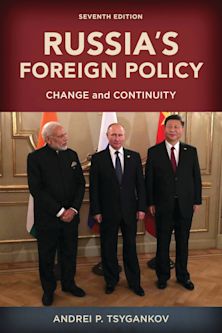A Sustainable U.S. Strategy for Transatlantic Relations
NATO, the EU, and the USA
A Sustainable U.S. Strategy for Transatlantic Relations
NATO, the EU, and the USA
Description
The election of President Donald J. Trump in 2024, is reshaping the current transatlantic relationship. There are those who argue that this relationship no longer serves U.S. interests. Others argue that Europe is more than capable of dealing with Russia and that the United States should conserve its limited resources and focus on China. A Sustainable U.S. Strategy for Transatlantic Relations: NATO, the EU, and the USA disagrees. With a rising and increasingly menacing China, an aggressive and dangerous Russia, and a host of other challenges, the United States and its allies need each other more than ever. This requires a sustainable Transatlantic strategy that acknowledges and addresses both the domestic and international environment facing the United States and its allies.
A strong NATO, with an improved European support, will provide a credible deterrent and the capability to prevail in any conflict. At the same time, the EU, with its economic strength and political influence, is needed to complement NATO. In addition to NATO and the EU, the United States needs to strengthen key bilateral relations in Europe. Finally, for the transatlantic relationship to continue, European allies need to increase their contributions to transatlantic security, both with increased spending and greater capabilities. This book shows how this can be done.
Table of Contents
Introduction: A Sustainable U.S. Strategy for Transatlantic Relations.
Part I – Causal beliefs, alliances, partners, and key bi-lateral relations.
1 Causal beliefs: a synthesis of international relations theory.
2 NATO: the foundation of the Transatlantic Strategy.
3 The EU: the scaffolding of a sustainable Transatlantic Strategy.
4 Key bi-lateral relations: Sustaining Key Bi-Lateral Relations.
5 Türkiye: a difficult but necessary ally.
Part II – Challenges – Burden Sharing, Russia, and China.
6 Burden Sharing: an Essential Element of a Sustainable Strategy.
7 Russia: Why Europe and the United States Still Need Each Other.
8 China: Why the United States and Europe need each other to compete.
Conclusion
Product details

| Published | Nov 27 2025 |
|---|---|
| Format | Ebook (PDF) |
| Edition | 1st |
| Extent | 264 |
| ISBN | 9798216269243 |
| Imprint | Bloomsbury Academic |
| Illustrations | 10 tables (4 text based, 5 graphs, and one diagram) |
| Publisher | Bloomsbury Publishing |
Reviews

ONLINE RESOURCES
Bloomsbury Collections
This book is available on Bloomsbury Collections where your library has access.



































